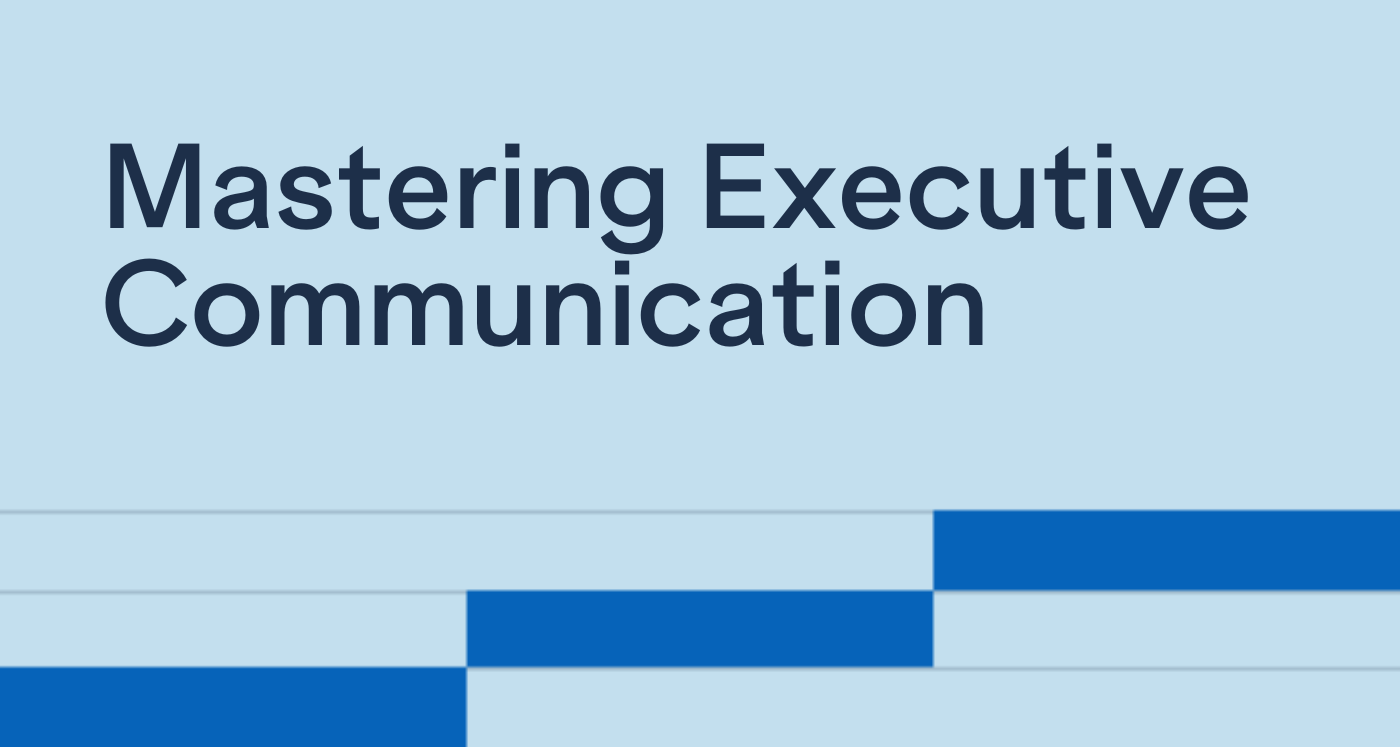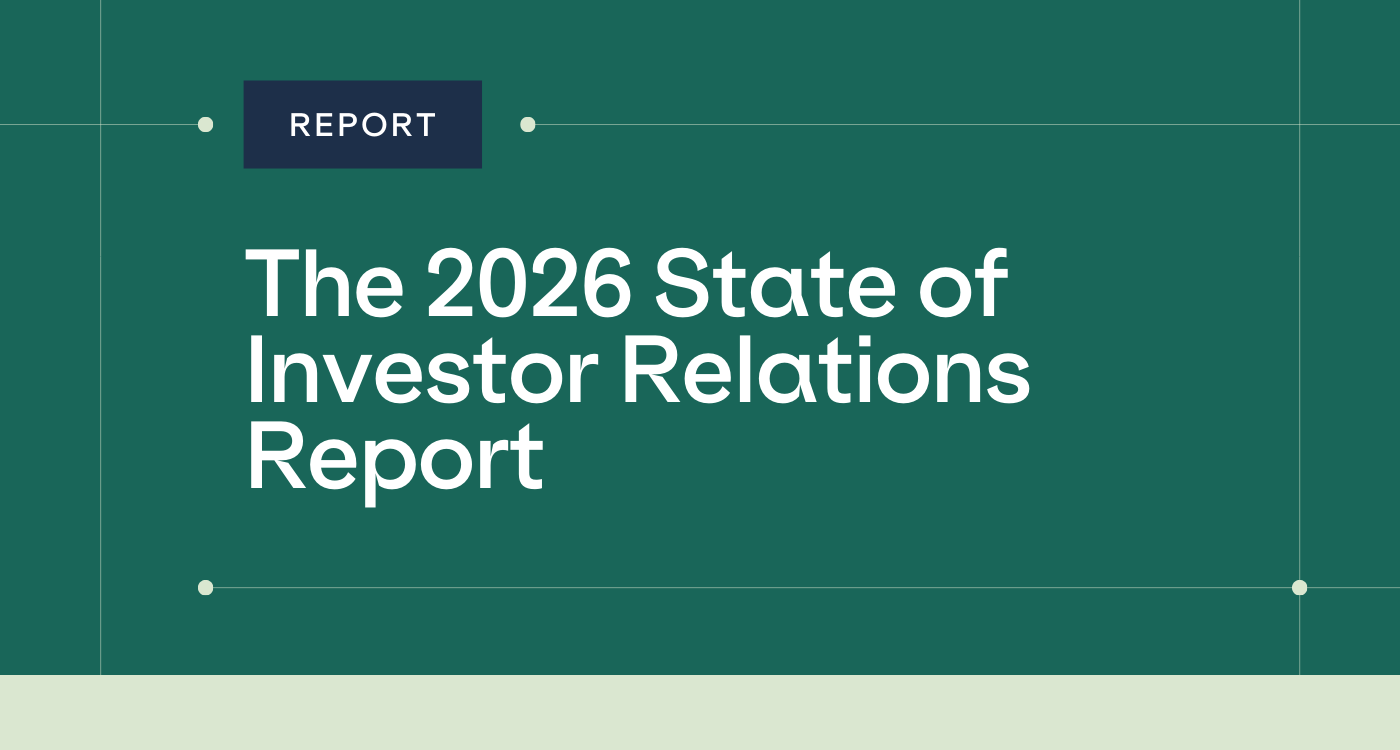
Activism readiness: Insights from IRO Kiley Rawlins
What's your plan for shareholder activism? Learn the tried and true ways Kiley Rawlins has navigated activism in her IR career.

From signing our first client to securing a USD $20M series A financing deal last summer, Irwin has come a long way in five years. Thank you to our clients, employees, partners and investors for your consistent trust and support that has contributed to our continued success.
Looking back as we move forward, our executive team David Whyte, Mark Fasken, and Brad Robertson put their heads together to reflect on the most important truths they’ve learned while building a thriving business together.
Here are five lessons learned over the last five years:
Starting a business is no easy feat and comes with many trials and tribulations. In the early stages of trying to gain space in any industry, it's crucial to understand your prospective customers' needs thoroughly.
If we could give one piece of advice to aspiring founders, it would be to partner with prospects and customers as you validate ideas around your product, especially in the early stages of development but also continually through the evolution of your company. Irwin’s clients are the heart of our business, and our product is constantly evolving based on the feedback we receive. Creating a strategic network that provides support, insight, and resources has enabled us to iterate and deliver a powerful and versatile product suite — Irwin wouldn’t be where it is today without our partners.
In the early stages of your business, analyzing how you’re going to get from point A to point B can be paralyzing. Start by breaking down the metrics at a more granular level and deciphering what needs to get done on a day-to-day basis. Set high but realistic goals and be sufficiently aggressive. Setting unreasonable goalposts will only position you for failure. Having smaller wins more frequently is more important than having one big outsized goal that not everyone can contribute to.
“Try not to compare where you are today to where you want to be in the future. Expectations can be dangerous and paralyzing. Instead, try to put one foot in front of the other and move the business forward day-by-day without worrying about hitting that big future revenue number or milestone. Over time those small incremental movements each day will compound, and you'll look back over a year or a longer period and realize that you've done what you set out to do without realizing it.”
— David Whyte, on managing expectations.
There is power in compounding, so focus on adding value to the business one day at a time. Bill Gates said, “Most people overestimate what they can do in one year and underestimate what they can do in ten years.” Looking back as a leadership team, we’re amazed at how much we’ve accomplished over five years.
It’s no surprise that starting a business can be immensely stressful and emotionally taxing. Learning how to control your emotional volatility through successes and failures is crucial. Learn to listen, set boundaries, and have outside interests.
“Manage your emotional volatility. You're going to have a lot of high highs and low lows. It's incredibly taxing and tiring on both sides, so try to keep your emotions as flat as possible, which will pay dividends in the long term.”
Creating a positive, healthy work environment is so important. Your workplace setting contributes to how employees operate and communicate with one another and directly impacts performance. A good company culture attracts and retains high-quality talent.
It’s essential to outline your mission and values, but it's the actions and behaviours that naturally form a company’s culture.
“You can put words to paper but it’s about the people you hire. They will define what your culture really is.”
Mark Fasken, on workplace culture
We look for like-minded individuals who enjoy a steep learning curve, are motivated, curious, and focused. We recently encouraged our larger leadership team to read the novel “Amp it Up,” which outlines two types of workers: drivers and passengers. We look to surround ourselves with individuals who have the initiative to drive. As a high-growth company, we attract self-starters, people who are passionate about building and want to take their learning to the next level.
Our employees are our greatest asset, and we’re proud to be recognized for our culture through recognition programs like Great Place to Work Canada. We’ve learned to take our time in the hiring process, trust our gut, and not to rush a hire simply because we need to fill a position.
What’s the one key thing we’ve each learned about leadership?
David: The importance of treating employees with respect. Treat people the way you want to be treated while recognizing not everyone is cut from the same cloth. People have different motivations and capabilities. Learning to adapt is important.
Mark: The importance of being vulnerable. You don't have to know everything or do everything yourself — that’s why you hire talent. You’re not always going to be the smartest person in the room, so maintaining a certain level of vulnerability is important. You do and will need help, so don’t be afraid to take that help from your team, partners, or external advisors who are experts in their own subject matter.
Brad: The importance of being an empathetic leader. As a leader with experience, what might seem obvious to you, doesn’t always seem obvious to others. Through this process, you learn to become a better teacher along the way. You might be able to solve something in 30 seconds, but it’s a far more valuable learning technique to let someone else take two hours to solve it.
We are immensely proud of the company we are today. Today we’re reflecting not only on the business itself, but on our employees, clients, partners and investors that have contributed to our success. Thank you for an amazing five years, we're looking forward to what’s to come in the next five.
Discover why investor relations and capital markets professionals love Irwin.

What's your plan for shareholder activism? Learn the tried and true ways Kiley Rawlins has navigated activism in her IR career.

Effective investor relations extends far beyond crafting compelling messages. Learn how the experts deliver their story strategically.

Across geographies and market caps, one theme is consistent: IR is entering a period of recalibration. Learn what's changing in 2026.